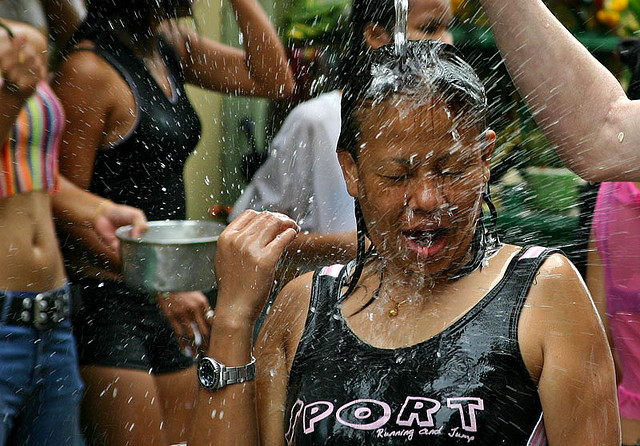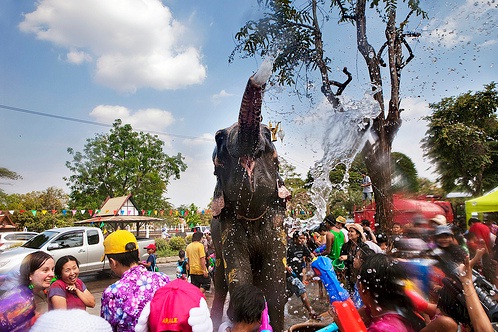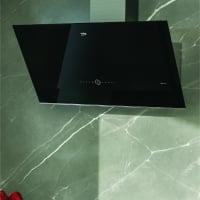Songkran, also known as the Water Festival, takes place in a vibrant atmosphere in Thailand as people across the country temporarily set aside their worries and conflicts to celebrate the New Year and wish each other good fortune.
.jpg_2.jpg)
A tourist expresses their delight at the Songkran festival at Central World.
Although they don't hold ancestral worship ceremonies, Thais often go to temples during this time to perform the ritual of bathing the Buddha statue, hoping for the best things in the new year. According to legend, Songkran means "movement," representing the Sun moving from the Zodiac to the Taurus region in the universe. People celebrate the Buddha's birth by splashing water on each other to wash away worries and sorrows.
Some localities in northern Thailand still preserve the ancient custom where, on the first day of the New Year (April 13th), people bring fruits and vegetarian dishes to offer to monks, attend the Buddha bathing ceremony at the temple, and then return home to wish their grandparents and parents long life.

This year, Thai people are given an extra day off, so the Songkran festival will last until April 16th. Prime Minister Yingluck Shinawatra returned to her hometown in Chiang Mai to celebrate the festival with her family, while protest leader Suthep Thaugsuban celebrated with his supporters at their campsite.
This year, the Tourism Authority of Thailand has collaborated with local authorities to organize numerous Songkran festivals to stimulate tourism and spending by both locals and foreign tourists. In Bangkok, Songkran is still celebrated in familiar areas such as Central World shopping mall, Silom, and the Khao San Road area, which is popular with foreign tourists.
Thanachot Peerkad said: "I came here to participate in the festival organized by the government to witness the modern-day New Year celebrations and it felt wonderful. April in Thailand is one of the hottest months of the year, and people need water to relieve the oppressive heat. Historically, Songkran was a time for family reunions. Everyone, no matter where they worked, tried to return home to see their families and participate in the water-splashing ritual to bless the elders and wish them good luck. It was also an opportunity for them to wash away any mistakes they had made during the year so they could enter the new year with a clearer conscience. Nowadays, these activities are not as common, but the Songkran festival here still makes me feel very happy because everyone is like friends, very peaceful and friendly."

In front of Central World shopping mall, two areas were set aside for people celebrating Tet (Vietnamese Lunar New Year) to choose from and participate in. Visitors could join the water splashing festival or the water gun festival. Along Silom Street, a street lined with shops similar to those in Hanoi's Hang Ngang and Hang Dao streets, shop owners displayed buckets of water in front of their doors and asked permission to splash water on passersby to wish them good luck. In the Khao San area, the festive atmosphere was vibrant. People used water guns, buckets, basins, and even tap water to spray each other. These were truly moments of relaxation and enjoyment, showcasing a spirit of friendship without borders. This also symbolized the spread of good luck and happiness everywhere.
A tourist from Africa said: "It was truly a wonderful day. We are so happy that this festival will continue for the next few days. You see, there's a wonderful atmosphere here. There are six of us here for a vacation and we've truly experienced the most unexpected things. We hope to be back here again for Songkran next year... We love this festival and we love Thailand."

 VI
VI EN
EN































